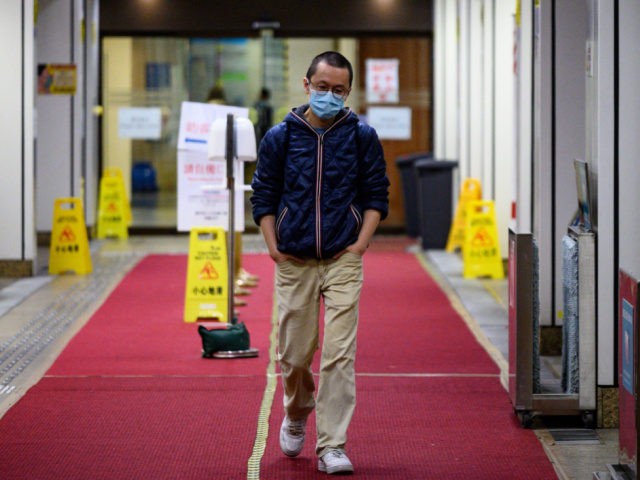Hong Kong may soon suffer from a medical staff shortage amid an “increasing loss of public sector medical staff due to emigration,” Henry Fan, the chairman of Hong Kong’s government-run Hospital Authority, warned in an interview with the Hang Seng University of Hong Kong published Friday.
The turnover rate for doctors and nurses in Hong Kong’s public sector increased from 4.6 percent in July 2020 to 6.5 percent by the end of June 2021, according to Fan.
“When you emigrate, you need to do a number of things. For example, [the departed staff] asked us for their detailed service records or early tax clearance because they have to leave,” Fan said, explaining how Hong Kong’s Hospital Authority anticipates and tracks likely staff exits.
“So we’re sure the increase in staff losses was partly because of people emigrating, it’s just that we don’t have the exact figures,” he added.
Fan said some Hong Kong public sector doctors have transitioned to the private sector in recent months to replace physicians in private medical practices who “have left the territory [of Hong Kong].”
Hong Kong’s population fell by 87,000, or 1.2 percent, to 7,394,700 over the past year, the city’s government announced August 12. Hong Kong government officials partially attributed the city’s population decline to “a net outflow of Hong Kong residents, with 89,200 people having left the SAR and only 13,900 coming to the territory” over the past 12 months. SAR is short for the Hong Kong Special Administrative Region, which is communist China’s official name for the city.
Hong Kong’s latest population statistics do not necessarily “indicate a high level of emigration,” a spokesman for the city’s government told reporters at a press briefing on Thursday.
“Net movement, which includes the movement of Hong Kong residents into and out of Hong Kong for various purposes including work and study, is conceptually different from immigration and emigration,” he said.
“Being an international city, Hong Kong’s population has always been mobile. During the past 10 years, net outflows of Hong Kong residents other than One-way Permit holders were recorded for most of the years,” the spokesman noted.
The Hong Kong government’s Mandatory Provident Fund Schemes Authority recently published an annual report showing that nearly “HK $6.6 billion worth of funds had been withdrawn from April 2020 to March this year by people who claimed they’d be leaving Hong Kong permanently,” Radio Television Hong Kong (RTHK) reported August 12.
“The figure is 27 percent higher than the previous financial year, and the highest on record,” according to the Hong Kong public broadcaster.
Highly educated and professional Hongkongers have fled the city en masse over the past year to escape a human rights crackdown on the metropolis by pro-China forces within Hong Kong’s government in June 2020. The Chinese Communist Party’s rubber-stamp legislature passed a “National Security Law” that went into effect in Hong Kong last summer. The legislation extinguished the Hong Kong government’s semi-autonomy, which the city had enjoyed for more than two decades under the terms of a British-Sino handover agreement drafted to return Hong Kong to Chinese rule in 1997.
The National Security Law created four new crimes in Hong Kong: secession, subversion, terrorism, and collusion with foreign forces. Arrests have occurred on “national security” charges over the use of anti-communist slogans, songs, and iconography, as well as the use of foreign flags. The 2019 anti-communist Hong Kong protest movement often used American and British flags to represent its values.
“For the four offences, ‘serious’ cases will generally attract penalties of at least 10 years and up to life imprisonment. Regular cases will attract penalties of a minimum of three years behind bars and a maximum of 10 years,” the Hong Kong Free Press reported at the time. The CCP designed Hong Kong’s National Security Law to quell a powerful pro-democracy protest movement that had overtaken the city for the entire preceding year.

COMMENTS
Please let us know if you're having issues with commenting.